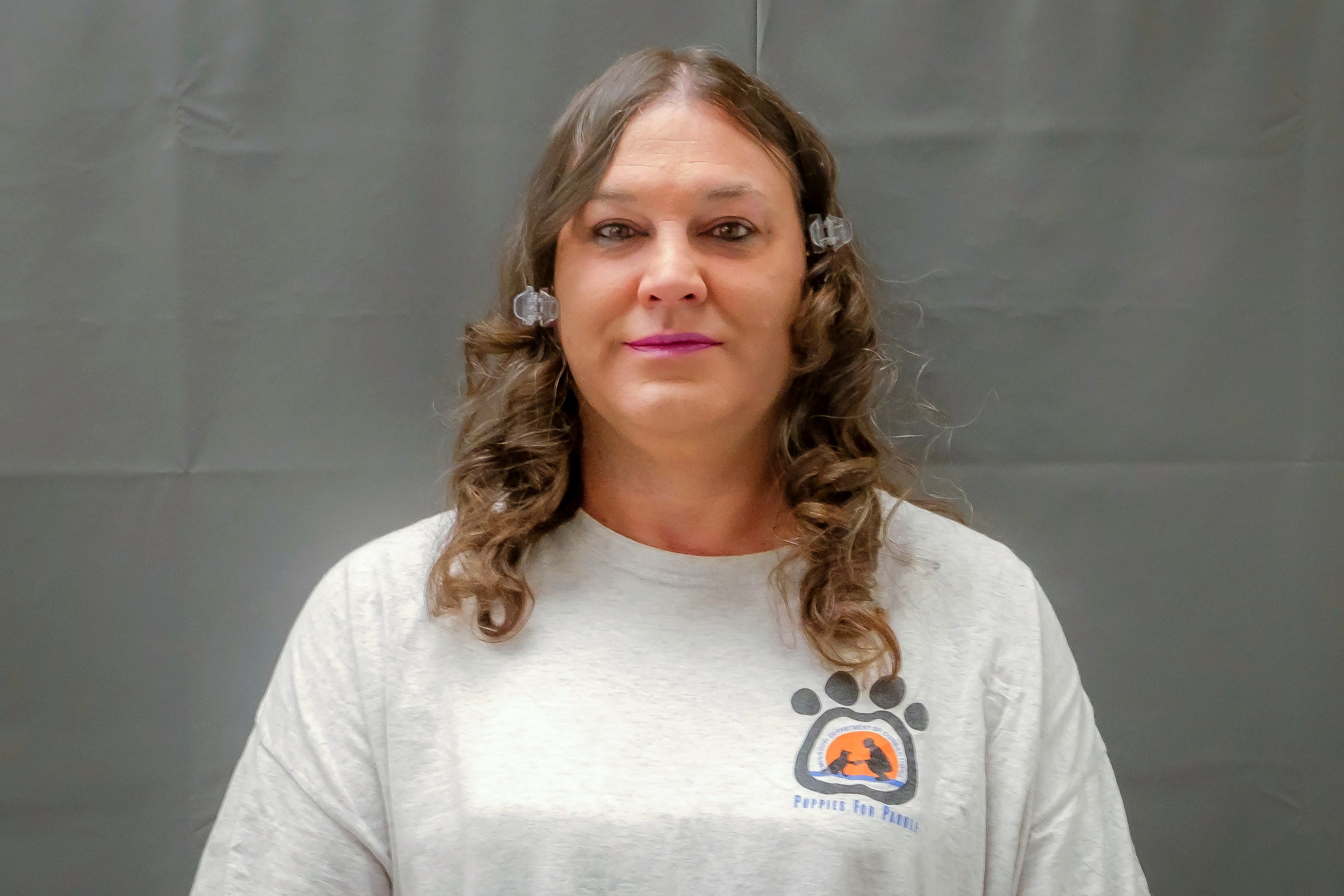Amber McLaughlin: Missouri carries out first execution of openly transgender inmate for 2003 murder
Killing marks one of few executions of women in US since 1970s
The state of Missouri executed Amber McLaughlin on Tuesday evening, marking the first time a US state has carried out the death penalty against an openly transgender individual.
McLaughlin died just before 7pm local time at a state prison in Bonne Terre, Missouri, after being given lethal injection drugs, the St Louis Post-Dispatch reports.
The 49-year-old, convicted of first-degree murder and rape for a 2003 murder, submitted an apology as her final statement.
“I am sorry for what I did,” she said in remarks given to the state department of corrections, Fox2 reports. “I am a loving and caring person.”
The inmate spoke quietly with a spiritual adviser during the execution, where she breathed heavily then shut her eyes and died, according to an Associated Press reporter who witnessed the killing.

McLaughlin, who began transitioning three years ago, was convicted of the 2003 killing of Beverly Guenther.
McLaughlin and Guenther had previously been in a relationship, and the former mercilessly harassed the latter, prompting Guenther to seek a police protective order.
On 20 November, 2003, Guenther’s neighbours called police when she didn’t return home.
Officers found a broken knife handle and a trail of blood outside the woman’s office, and McLaughlin later showed officers a location near the Mississippi River in St Louis where she dumped the body, according to court records.
Critics argued McLaughlin didn’t deserve to die.
A group of protesters from Missourians for Alternatives to the Death Penalty rallied in Kansas City ahead of the execution.
“It wasn’t a unanimous jury,” protester Terri Butel told the Kansas City Star. “In Missouri we allow a judge just to make a decision — that’s not the will of the people.”
“We have to stop violence and this is legalised violence,” she added. “No one judge should decide if someone lives or dies.”
“The death penalty is wrong, deeply flawed, and needs to be abolished,” Michael Kelley, a candidate for city council in Kansas City, wrote on Twitter on Tuesday, responding to the news of McLaughlin’s scheduled execution.
The inmate’s lawyers had petitioned Governor Michael Parson for clemency, pointing to evidence that McLaughlin suffered from intellectual disabilities, mental health issues, gender dysphoria, a history of suicide attempts, and childhood trauma and abuse after being sent into the foster system.
The Republican governor rejected the request.
“McLaughlin’s culpability in Ms. Guenther’s murder has never been in question,” Mr Parson said in a statement on Tuesday. “McLaughlin’s conviction and sentence remains after multiple, thorough examinations of Missouri law. McLaughlin stalked, raped, and murdered Ms. Guenther. McLaughlin is a violent criminal. Ms. Guenther’s family and loved ones deserve peace.”
In the clemency petition, McLaughlin’s attorneys argued a trial court never heard planned expert testimony surrounding the inmate’s mental health, and that a jury was unable to reach a conclusion on a death sentence. A judge was the one who decided on execution, a rare practice that’s now only legal in two states.
A federal judge vacated the death sentence in 2016 on the basis of ineffective assistance from counsel, but a federal appeals court reinstated the punishment in 2021.
“It is an incredibly hard thing to know someone can save you but choose not to,” Larry Komp, McLaughlin’s lawyer, told the Wall Street Journal. “This was an ideal case to grant clemency—a circumstance where Amber had no chance even before she was born, and a jury deadlocked, refused to return a death sentence.”
“The voice of the community should be an absolute requirement before an execution should proceed—it is absent here,” he added.
McLaughlin told St Louis Public Radio she was genuinely remorseful for the murder.
“I’m sorry,” she said shortly before her execution. “I didn’t mean for it to happen.”
She told the radio station she struggled from a young age with her true identity.
“I think if I’d been my true self, I probably would not have been there,” she said.
In addition to being the first execution of a trans woman, Tuesday’s execution was one of the rare executions of a woman in the US. All but 17 executions since the death penalty was reinstated in the 1970s have been of men, according to the Death Penalty Information Center.
The Bureau of Justice Statistics estimates there are about 3,200 trans inmates in US prisons and jails, according to the Associated Press.
Missouri recently carried out another controversial execution, killing Kevin Johnson, convicted of a 2005 murder of a police officer, while denying his teenaged daughter’s request to witness the execution.
The Independent and the nonprofit Responsible Business Initiative for Justice (RBIJ) have launched a joint campaign calling for an end to the death penalty in the US. The RBIJ has attracted more than 150 well-known signatories to their Business Leaders Declaration Against the Death Penalty - with The Independent as the latest on the list. We join high-profile executives like Ariana Huffington, Facebook’s Sheryl Sandberg, and Virgin Group founder Sir Richard Branson as part of this initiative and are making a pledge to highlight the injustices of the death penalty in our coverage.
Bookmark popover
Removed from bookmarks